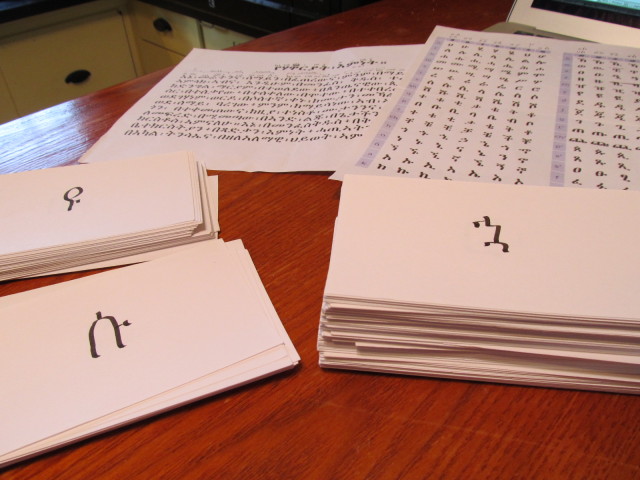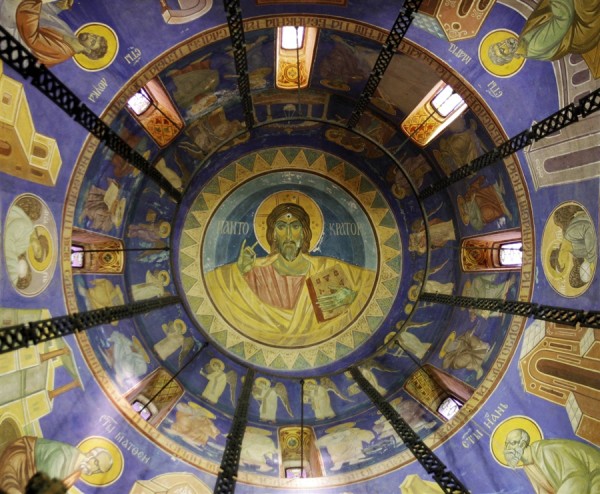Excerpts I found the most interesting, with a bit of description. Overall I found the book a challenging read. I had to have at least two cups of coffee beforehand to tackle it. It was worth it though – learned a lot. His earlier work The Art of Biblical Narrative is going to naturally be more useful though since most of the OT is in prose. I would definitely recommend it before this one.
—
We have different expectations of poetry from the get-go.
“As soon as we perceive that a verbal sequence has a sustained rhythm, that it is formally structured according to a continuously operating principle of organization, we know that we are in the presence of poetry and we respond to it accordingly…expecting certain effects from it and not others, granting certain conventions to it and not others.” – Barbara Herrnstein Smith
Quoted on p.6
—
A great quote about artists here. I agree.
Let me spell out the general principle involved. Every literary tradition converts the formal limitations of its own medium into an occasion for artistic expression: the artist, in fact, might be defined as a person who thrives on realizing new possibilities within formal limitations.
p.24
—
The Hebrew imagination was unabashedly anthropomorphic but by no means foolishly literalist.
p.36
Some folks criticize the bible for being so anthropomorphic so often (“Come on, God doesn’t really have hands!”) but I don’t see any problem with it at all. It’s an effective way to communicate to us humans. Just don’t take it too serious.
—
Here, Alter takes aim at post-modern philosophers who think they can detect brilliant post-modern philosophy in the mind of the psalmist. On the contrary, they believe very much in the power of language and in God hearing it an understanding.
I do not want to propose, in the manner of one fashionable school of contemporary criticism, that we should uncover in the text a covert or unwitting reversal of its own hierarchical oppositions; or more specifically, that silence is affirmed and then abandoned in consequence of the poet’s intuition that all speech is a lie masquerading as truth because of the inevitably arbitrary junction between signifier and signified, language and reality. On the contrary, the ancient Hebrew literary imagination reverts again and again to a bedrock assumption about the efficacy of speech, cosmogonically demonstrated by the Lord (in Genesis 1) Who is emulated by man. In our poem [Psalm 39], the speaker’s final plea that God hear his cry presupposes the efficacy of speech, the truth-telling power with which language has been used to expose the supplicant’s plight. The rapid swings between oppositions in the poem are dictated not by an epistemological quandary but by a psychological dialectic in the speaker.
p.70
—
An interesting comment on the practice of head-shaving for mourning. It shows up in the psalms, but is actually forbidden.
Dressing in sackcloth and saving the head are both ancient Near Eastern mourning practices, but the latter may be more shocking to the sensibilities, both because it is an act performed on the body, not just a change of garment, and because it is a pagan custom actually forbidden by Mosaic law. The last point illustrates how the conservatism of poetic formulation, sometimes reflecting no-longer-current practices or beliefs, might be exploited for expressive effect.
p.74
—
A common theme in Alter’s commentary is that the poetry IS largely the content. It’s not just a technique the author is using to embellish what he really wants to say but actually what he really wants to say.
What I am suggesting is that the exploration of the problem of theodicy in the Book of Job and the “answer” it proposes cannot be separated from the poetic vehicle of the book and that one misses the real intent by reading the text, as has too often been done, as a paraphrasable philosophic argument merely embellished or made more arresting by poetic devices.
p.76
The choice of the poetic medium for the Job poet, or for Isaiah, or for the psalmist, was not merely a matter of giving weight and verbal dignity to a preconceived message but of uncovering or discovering meanings through the resources of poetry.
p.205
Tolkien disliked allegory but loved poetry. I think he must have seen the latter as a legitimate medium and the former as an artificial container or embellishment of sorts. Just a theory.
—
In the ancient Near East a “book” remained for a long time a relatively open structure, so that later writers might seek to amplify or highlight the meaning of certain of the original emphases.
p.91
This makes post-editing and additions not an evil thing like it is today. We are so used to treating books as high self-contained units. Publishing and copyright laws make it extremely so. But in ancient times, these things would float around and run on and be passed down through generations of scribes, copied occasionally. That what we have in the Old Testament is a curated collection of writings that a later editor put together should come as no surprise. We need not be bothered by that thought, as if it makes the bible less magical. That’s the only way ANYTHING got written down back then. It’s not like writing and disseminating things are now.
—
Here, Alter deals with the issue of Behemoth and Leviathan in Job. Growing up in young-earth-creationist circles, these passages were always pulled out as some sort of proof that dinosaurs and humans romped around together in recent history. I’m afraid I find the sort of explanation given below much more convincing.
To put this question in historical perspective, the very distinction we as moderns make between mythology and zoology would not have been so clear-cut for the ancient imagination. The Job poet and his audience, after all, lived in an era before zoos, and exotic beasts like the ones described in Chapters 40-41 were not part of an easily accessible and observable reality. The borderlines, then, between fabled report, immemorial myth, and natural history would tend to blur, and the poet creatively exploits this blur in his climactic evocation of the two amphibious beasts that are at once part of the natural world and beyond it.
p.107
—
Some great thoughts on the necessity of language with regards to religious experience.
But God manifests Himself to man in part through language, and necessarily His deeds are made known by any one man to others, and perhaps also by any one man to himself, chiefly through the mediation of language. Psalms, more than any other group of biblical poems, brings to the fore this consciousness of the linguistic medium of religious experience. These ancient makers of devotional and celebratory poems were keenly aware that poetry is the most complex ordering of language, and perhaps also the most demanding. Within the formal limits of a poem the poet can take advantage of the emphatic repetitions dictated by the particular prosadic system, the symmetries and antitheses and internal echoes intensified by a closed verbal structure, the fine intertwinings of sound and image and reported act, the modulated shifts in grammatical voice and object of address, to give coherence and authority to his perceptions of the world. The psalmsist’s delight in the suppleness and serendipities of poetic form is not a distraction from the spiritual seriousness of the poems but his chief means of realizing his spiritual vision, and it is one source of the power these poems continue to have not only to excite our imaginations but also to engage our lives.
p.136
—
On how the natural vagueness of poetry has made large parts of the bible still very meaningful to readers today and not just to their initial audience:
If we could actually hear God talking, making His will manifest in words of the Hebrew language, what would He sound like? Since poetry is our best human model of intricately rich communication, not only solemn, weighty, and forceful but also densely woven with complex internal connections, meanings, and implications, it makes sese that divine speech should be represented as poetry.
Such speech is directed to the concrete situation of a historical audience, but the form of the speech exhibits the historical indeterminancy of the language of poetry, which helps explain why these discoures have touched the lives of millions of readers far removed in time, space and political predicament from the small groups of ancient Hebrews against whom Hosea, Isaiah, Jeremiach, ad their confreres originally inveighed.
p.141
—
On of the best teachers I had in college was always saying, “Be specific, use examples.” Here, Alter rewrites Isaiah 49:14-23 as prose and then describes what was lost in the transition. Go good example indeed.
But Zion said, “The LORD has forsaken me;
my Lord has forgotten me.”
“Can a woman forget her nursing child,
that she should have no compassion on the son of her womb?
Even these may forget,
yet I will not forget you.
Behold, I have engraved you on the palms of my hands;
your walls are continually before me.
Your builders make haste;
your destroyers and those who laid you waste go out from you.
Lift up your eyes around and see;
they all gather, they come to you.
As I live, declares the LORD,
you shall put them all on as an ornament;
you shall bind them on as a bride does.
“Surely your waste and your desolate places
and your devastated land—
surely now you will be too narrow for your inhabitants,
and those who swallowed you up will be far away.
The children of your bereavement
will yet say in your ears:
‘The place is too narrow for me;
make room for me to dwell in.’
Then you will say in your heart:
‘Who has borne me these?
I was bereaved and barren,
exiled and put away,
but who has brought up these?
Behold, I was left alone;
from where have these come?’”
Thus says the Lord GOD:
“Behold, I will lift up my hand to the nations,
and raise my signal to the peoples;
and they shall bring your sons in their arms,
and your daughters shall be carried on their shoulders.
Kings shall be your foster fathers,
and their queens your nursing mothers.
With their faces to the ground they shall bow down to you,
and lick the dust of your feet.
Then you will know that I am the LORD;
those who wait for me shall not be put to shame.”
(Isaiah 49:14-23 ESV)
Paraphrased into prose:
Days are coming, the Lord declares, when your exiled children, whose strength was afflicted on the way, and whose ankles were put in chains, will return in exultation to Zion. And your oppressors will flee from your midst, and your people will inherit their land and build its ruined cities, and plant fields and vineyards in place of the desolation. And I will cause them to dwell on their soil, for My loving care will not depart from them On the day when I return their captivity, nations will bring them tribute, and none will make them afraid.
…and the analysis:
What has been left out of the prose version is the symbolic presence of Zion as a despereate, suffering woman, and the manifestation through God’s dialogue with Zion of the Lord’s tender, unfaltering love for Israel. The biological immediacy of womb and breast and bosom that contributes to the emotional force of the poem is also absent from the prose. Left out as will is the sense of miraculous surprise in the return to Zion when the breeaved woman suddenly discovers that her children are alive and well, that the ver regents of the earth now cradle and care for them.
p.161
—
According to Alter, Proverbs 1:5-6 warns us that having a wise text isn’t good enough. You have to know how to read it.
The transmission of wisdom depends on an adeptness at literary formulation, and the reception of wisdom by an audience of the “wise” and the “discerning” – requires and answering finesse in reading the poems with discrimination, “to understand proverb and epigram.” The proem [preamble] of the Book of Proverbs, in other words, at once puts us on guard as interpreters and suggests that if we are not good readers we will not get the point of the sayings of the wise.
p.168
—
On how the Bible writers weren’t trying to make a name for themselves or go for originality and novelty – the opposite in fact.
The Bible knows nothing of the personal lyric; the anonymity of all but prophetic poetry in the Bible is an authentic reflection of its fundamentally collective nature. I of course don’t mean to suggest that poetic composition in ancient Israel was a group activity only that the finished composition was meant to address the needs and concerns of the group, and was most commonly fashioned out of traditional materials and according to familiar conventional patterns that made it readily usable by the group for liturgical or celebratory or educational purposes. The orientation toward collective expression also explains the formal conservatism of biblical poetry.
p.207
—
A disclaimer of sorts, found on the very last page:
We cannot all be poets, but what some are privileged to grasp through an act of imaginative penetration others may accomplish more prosaically step by step through patient analysis.
p.214
—–



